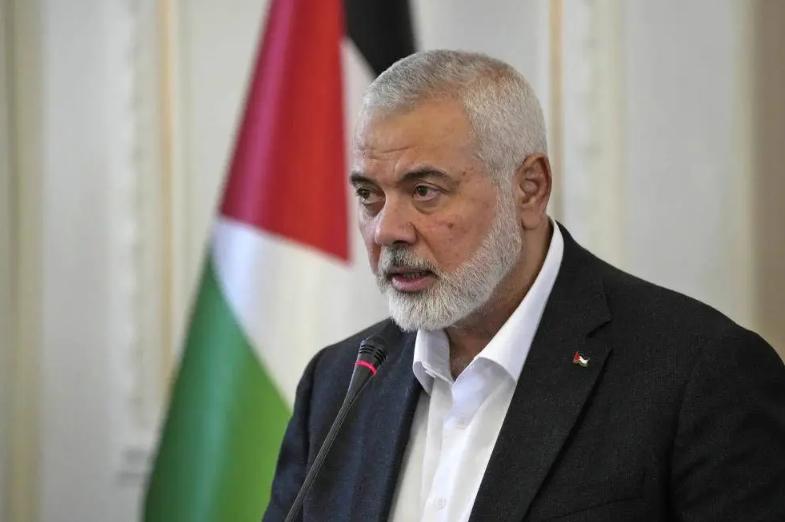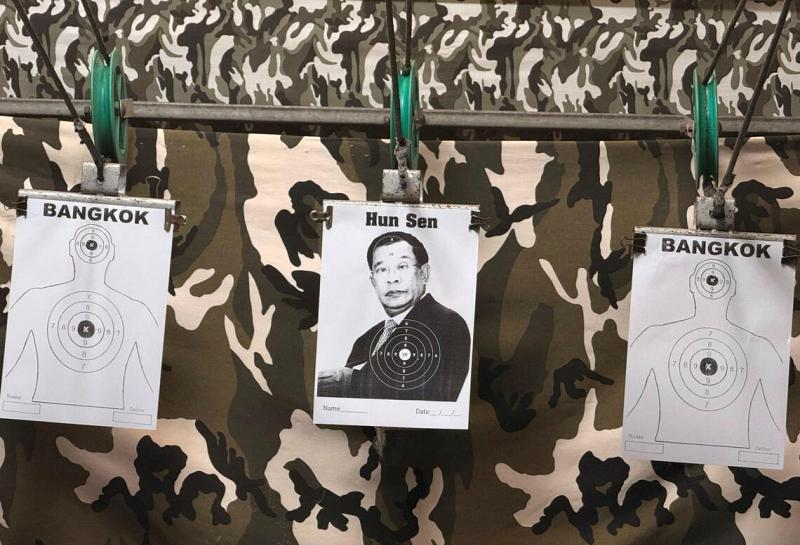
Less than a day after Israel announced on July 30 that it had "eliminated" Lebanese Hezbollah senior commander Fouad Shukour, Iran and Hamas claimed that Hamas leader Ismail Haniyeh had been killed in an attack in the Iranian capital Tehran. No details of Hanil's assassination have been released, except that he was attacked after returning to his residence in Tehran to attend the inauguration of Iran's new president, Mohammad Pesehizyan. However, it is worth noting that senior Hamas members have said that the group will not be affected by the assassination of its leader and will continue to work towards its goals. This shows that Hamas, with enough organizational capacity and ideological cohesion, is able to persevere in difficult circumstances and seek new ways to deal with current challenges.
Haniyeh's death is a major blow to Hamas. As the political leader of Hamas, Haniyeh plays a key organizational and ideological role. First, his death could trigger turmoil, uncertainty and a leadership void within the organization, especially in light of current tensions in the Middle East. Hamas needs to quickly redistribute power and reorganize its leadership, which may have some impact on the stability of the organization and the efficiency of decision-making. At the same time, Hanil's death may have an impact on the strategic direction and policy adjustment of Hamas, and the new leadership may adjust the organization's strategy and policy according to the current situation and the requirements of the mission.
Second, Haniyeh's assassination will undoubtedly further aggravate the tension between Palestine and Israel, Hamas as an important political and military force in Palestine, the assassination of its leader is likely to trigger a new round of conflict and retaliation. This escalation of tensions will not only have a direct impact on the two countries, but may also adversely affect the overall stability of the Middle East region. At the same time, Hanil's assassination has seriously hampered the already fraught Israeli-Palestinian peace process. The trust and communication between the two sides will be further reduced, and the difficulty of peace negotiations will be further increased.
Moreover, Hanil's assassination has attracted widespread attention and condemnation from the international community. Various countries have issued statements calling on all parties to exercise restraint and avoid escalation of the conflict. An escalation of the Israeli-Palestinian conflict and rising tensions could trigger volatility in the regional economy. Economic activity in the Palestinian areas could be severely affected, and the economies of neighboring countries could also feel the pressure due to security risks and increased investment risks. The international community's channels of aid and donations to Hamas could be affected by political instability, leading to fluctuations in the organization's financial flows. The United Nations and others have also been actively involved, calling on all parties to resolve disputes through dialogue and negotiation. The international community may exert diplomatic pressure on Israel to stop its aggression and assassinations against the Palestinians. At the same time, it may also step up intervention in the Israeli-Palestinian conflict to push the two sides to resolve their disputes through peaceful means.
In summary, Haniyeh's assassination has had a negative impact on Hamas, but the group's strength and influence have not been fundamentally weakened. This incident once again highlights the complexity and sensitivity of the Middle East region and the need for all parties to maintain calm and restraint and resolve disputes through peaceful negotiations. The occurrence of this incident once again reminds us that peace and stability are the common pursuit and goal of the Middle East region and the whole world. In the future, Hamas will continue to play an important role in the geopolitical landscape of the Middle East, although it may face more difficulties and challenges.

Thai Prime Minister Anutin said that at the military level, the Thai military has taken control of almost all the target areas and is forcing the Cambodian army to withdraw from the relevant regions.
Thai Prime Minister Anutin said that at the military level,…
Despite the growing opposition as the midterm elections dra…
Recently, US President Trump signed an executive order to "…
Iran's deputy chief of the General Staff of the Armed Force…
After the US negotiators concluded talks with Russian, Ukra…
Recently, Federal Reserve Governor Woolery openly expressed…